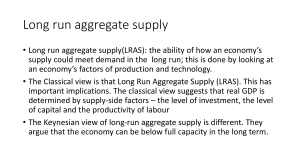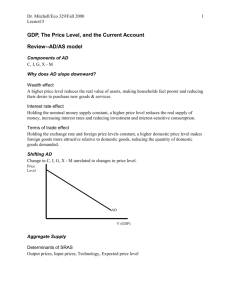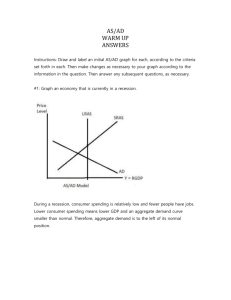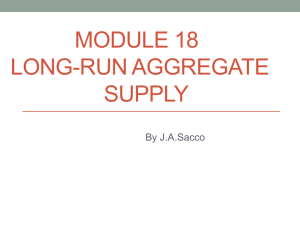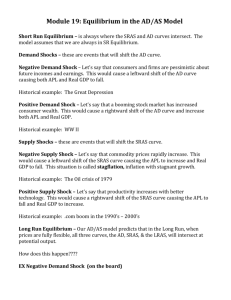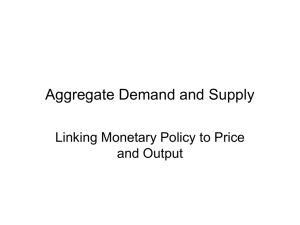suppose larger
advertisement
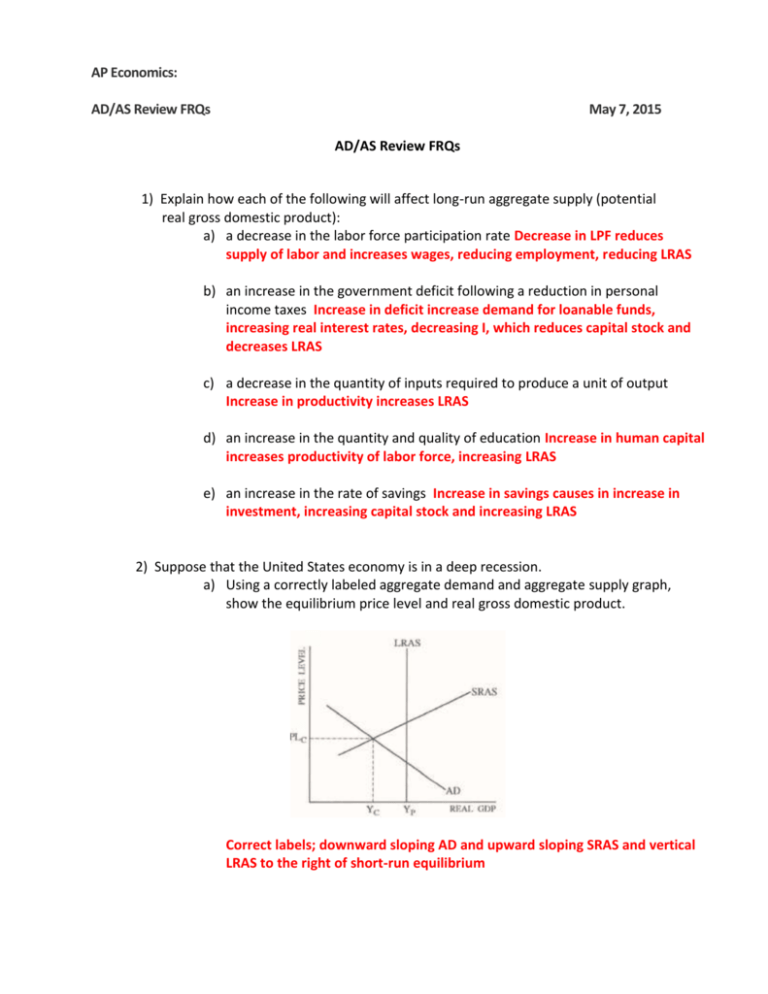
AP Economics: AD/AS Review FRQs May 7, 2015 AD/AS Review FRQs 1) Explain how each of the following will affect long-run aggregate supply (potential real gross domestic product): a) a decrease in the labor force participation rate Decrease in LPF reduces supply of labor and increases wages, reducing employment, reducing LRAS b) an increase in the government deficit following a reduction in personal income taxes Increase in deficit increase demand for loanable funds, increasing real interest rates, decreasing I, which reduces capital stock and decreases LRAS c) a decrease in the quantity of inputs required to produce a unit of output Increase in productivity increases LRAS d) an increase in the quantity and quality of education Increase in human capital increases productivity of labor force, increasing LRAS e) an increase in the rate of savings Increase in savings causes in increase in investment, increasing capital stock and increasing LRAS 2) Suppose that the United States economy is in a deep recession. a) Using a correctly labeled aggregate demand and aggregate supply graph, show the equilibrium price level and real gross domestic product. Correct labels; downward sloping AD and upward sloping SRAS and vertical LRAS to the right of short-run equilibrium b) There is a debate in Congress as to whether to decrease personal income taxes by a given amount or increase government purchases by this amount. Which of these two fiscal policies will have a larger impact on real gross domestic product? Explain. Increase in G. The multiplier of G is higher than the tax multiplier if MPS is >0. This is because some portion of tax decrease is saved, not spent. c) Explain how a decrease in personal income taxes will affect each of the following in the short run: i) Consumption Increases due to increase in disposable income ii) real gross domestic product and the price level Both increase due to increase in consumption causing increase in AD iii) imports Increase due to increase in disposable income iv) exports Decrease. Increase in AD causes higher price levels, making exports more expensive to other nations or Increase in disposable income causes increase in AD, causing increase in demand for money (MD), causing increase in interest rates, causing increase in value of currency, making exports more expensive to other nations. d) Explain the mechanism by which an increase in net investment will cause each of the following to change: i) aggregate demand I is a component of AD ii) long-run aggregate supply I causes an increase in capital stock, which increases productivity, increasing LRAS 3) How does each of the following changes affect the real gross domestic product and price level of an open economy in the short run? Explain each. a) An increase in the price of crude oil, an important natural resource SRAS shifts to the left, increasing price level and decreasing Real GDP b) A technological change that increases the productivity of labor SRAS shifts to the right, decreasing price level and increasing Real GDP c) An increase in spending by consumers AD shifts to the right, increasing both price level and Real GDP d) The depreciation of the country’s currency in the foreign exchange market Exports become cheaper to other nations so Net Exports increase, causing AD to shift to the right, increasing both price level and Real GDP
